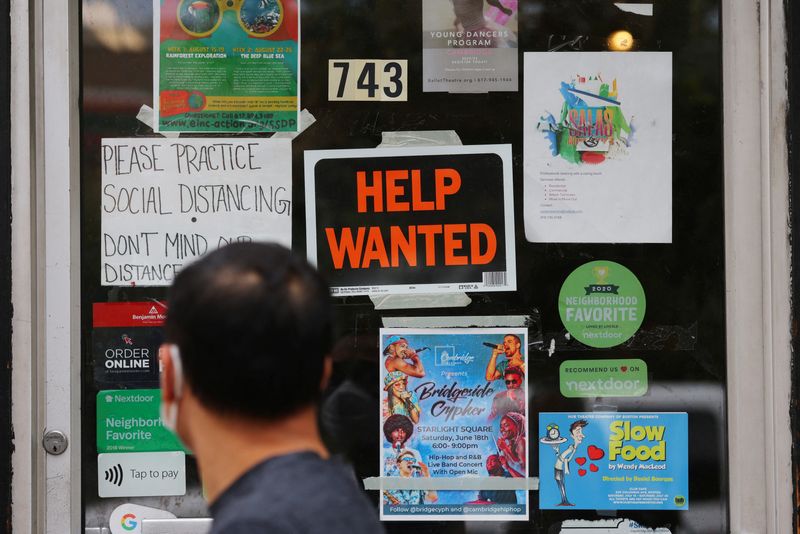(Reuters) -The volatile activity that has marked September so far may not let up any time soon, as investors are on edge ahead of more key macro events that could shape the tone for trading in the weeks ahead.
Here's your look at the week ahead for markets from Kevin Buckland in Tokyo, Ira Iosebashvili in New York, Yoruk Bahceli in Amsterdam and Naomi Rovnick and Amanda Cooper in London.
1/PRICE IS RIGHT?
Investors’ focus may have shifted to U.S. employment and economic growth, but the upcoming consumer price data - due on Sept. 11 - could still cause a stir.
The markets are still gaming out how much the Federal Reserve will need to cut rates at its Sept. 17-18 meeting, heightening the importance of every data report.
Evidence that inflation remains relatively robust could argue against a 50-basis point rate cut - currently seen as a less likely scenario than the Fed reducing rates by just 25 basis points. A sharp drop in consumer prices, on the other hand, could be interpreted as a sign economic growth has begun to slow more than expected, tipping the scales towards a jumbo cut.
Economists polled by Reuters expect inflation to have risen by 0.2% in August, matching the rise the previous month.
2/ECB'S NEXT MOVE
The European Central Bank is all but certain to deliver its second rate cut this cycle, so what matters more is any clues on what's next.
Traders now fully price another cut after September and close to a 50% chance of an additional move this year.
In mid-July, they saw less than a full chance of a post-September cut.
With a December move seen as likely, investors are eager to hear whether an October cut is a possibility too.
Once bitten twice shy, ECB policymakers are wary of making any promises. Some hawks are still declining to commit to September.
They are at odds with doves over whether a weak growth outlook is enough to put inflation worries to rest.
Inflation fell to just above the ECB's target at 2.2% in August, but sticky services and core measures mean some policymakers want more evidence that 2% is in reach before going all-out.
3/BLACK GOLD
Investors are struggling to decide if the bond or stock market is right about the economy. Bonds point to oncoming recession, while stocks - this most recent selloff notwithstanding - have vaulted to yet more record highs, reflecting a sense of confidence in a benign landing.
The problem is, only one can be right.
Enter the gold/oil ratio. This metric, which reflects how many barrels of crude it takes to buy one ounce of gold, is at its highest since 2020. The ratio drops when confidence in the economy increases, as it assumes energy demand will improve, and rises when concern about growth and recession - and therefore the prospect of gold-friendly rate cuts - sets in.
Gold is trading close to record highs around $2,500 an ounce, while oil is struggling to stay above $70 a barrel. Once again, only one can be right.
4/STERLING JOBS
The Bank of England was quicker than its peers to raise interest rates in 2021 and is expected to cut them more slowly, unless important data such as the Sept. 10 monthly wages report proves reassuring.
When the BoE implemented its first rate cut of this cycle on Aug. 1, in a move traders do not expect to happen again until November, it said it would closely watch pay growth, a major inflation factor.
UK wages rose at their slowest in nearly two years in the quarter to June 30, but unemployment dropped unexpectedly and the working population rose by significantly more than forecast.
A soft jobs report could benefit borrowers, but weaken the pound, which has boomed on bets the BoE will keep rates relatively high.
Bullish positions in sterling are mostly held by debt-funded speculators, who are motivated to sell at signs of trouble rather than risk margin calls.
5/PICKING A PREMIER
Japan's next prime minister will take over the push for better corporate governance that propelled stocks to record highs this year, support for the Bank of Japan's tightening campaign after decades of deflation, and responsibility for an ever-expanding debt pile that is by far the biggest in the industrialized world.
Incumbent Fumio Kishida is stepping down over a slush-fund scandal. The field of hopefuls to replace him could reach around 10 by the time campaigning starts on Sept. 12, ahead of a party vote on Sept. 27.

Shinjiro Koizumi, the son of a former prime minister, is a fan of deregulation, while perennial runner-up Shigeru Ishiba pushed for policy normalisation before the BOJ's controversial rate hike last month and Sanae Takaichi, the frontrunner among female candidates, is a reflationist.
The BOJ is independent, but the government can exert pressure. With the central bank's next meeting one week before the ruling party's vote, timing is tricky.